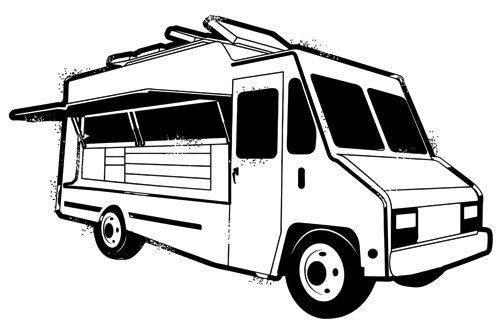news@sfbg.com
In a steering committee meeting for the Dolores Park Rehabilitation Project on August 4, San Francisco Recreation and Park Department (RPD) officials stunned the committee with a proposal to bring in more food trucks. The move came just two days after a ballot measure that would have banned more such leases in city parks was removed from the fall ballot.
The proposal included putting in a “cement pad,” with electrical and water hookups, where food trucks would park and sell their fare. It was just the latest in a series of controversial attempts to monetize park resources to raise funds for RPD (see “Parks Inc.,” July 12). But the steering committee reeled at the idea, worried it would permanently harm the image of Dolores Park.
“It was a surprise. It really hadn’t come up before,” said Rachel Herbert of Dolores Park Café, a steering committee member. Many of the neighbors don’t like the idea of commercializing the park because there’s no infrastructure to support it, she said.
“It personally made me question if the steering committee meetings are really just a way for Rec & Park to say, ‘We reached out to the community,'” said Herbert. The rehabilitation project is in its early stages of design and development, with a predicted completion date of April 2014.
There’s already one semi-permanent food truck in the park — the La Cocina-incubated, generator-powered Chaac-Mool truck — which is parked in the main park entrance. “We felt it would be irresponsible to ignore discussing a place for more food trucks in the new design,” said Jake Gilchrist, the park rehabilitation project manager.
“There were a lot of members in the room that didn’t want this to happen,” said steering committee member Robert Brust of the nonprofit Dolores Park Works. Brust said the argument over the proposal lasted all of five minutes before landscape architect Steve Cancian, employed by RPD to facilitate the meetings, “took it off the table.”
But it doesn’t look like they’re willing to give it up, said Brust. “The fight over the ‘commercialization’ of the park is at a stalemate right now,” he said. “Rec & Park has always sold stuff—they’re just trying to capitalize on it a little more now.”
Despite the steering committee’s obvious and immediate discontent with the idea to create a cemented, permanent space for food trucks, RPD officials say they are continuing to include the idea in community discussions. But they say they are open to suggestions.
“At the end of the day, it’s the community’s park,” RPD spokesperson Connie Chan told us. “We understand that whatever vision that we have, it needs to be with the community.”
The meeting came just two days after members of the Board of Supervisors killed a previously approved ballot measure that had been written by the group Take Back Our Parks, which had been severely criticized by RPD, Mayor Ed Lee, and supporters of the department’s privatization efforts. John Rizzo, a member of that group, expects RPD to move ahead with the proposal for Dolores Park.
“They never change something because of public opposition,” Rizzo said. “It’s the same stamp they use all over the city. They come up with these plans to make money and then they unveil the plans to the public.”
Rizzo suggested that the public contact San Francisco supervisors and the mayor to be heard regarding the privatization of parks, because “the [Recreation and Park] Commission is deaf ears.” Either way, Herbert said, significant changes are in store for Dolores Park, including the possibility of putting in a 14-foot paved road for vehicles. “I just really was kind of sad when I left that meeting. I don’t know if anyone’s really going to be able to make a difference. It seems like we’re in danger of it being built,” she said. “It’s not gonna be our sweet little Dolores Park anymore.”

